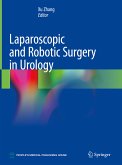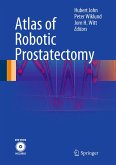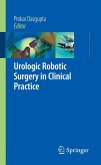This book provides a detailed overview of a range of simulation models that have been developed which are applicable to urology. Chapters feature critical analysis of techniques including synthetic bench top models, computer-assisted virtual reality and box simulators. Furthermore, details of best practice, the latest innovations and guidance on how to select potential low-cost options is provided, enabling the reader to systematically develop a thorough understanding of the subject.
Practical Simulation in Urology is a comprehensive resource that critically analyses the latest simulation techniques that are applicable in urology, making it an ideal resource for the practicing and trainee urologist seeking an up-to-date overview on the subject.
Dieser Download kann aus rechtlichen Gründen nur mit Rechnungsadresse in A, B, BG, CY, CZ, D, DK, EW, E, FIN, F, GR, HR, H, IRL, I, LT, L, LR, M, NL, PL, P, R, S, SLO, SK ausgeliefert werden.









